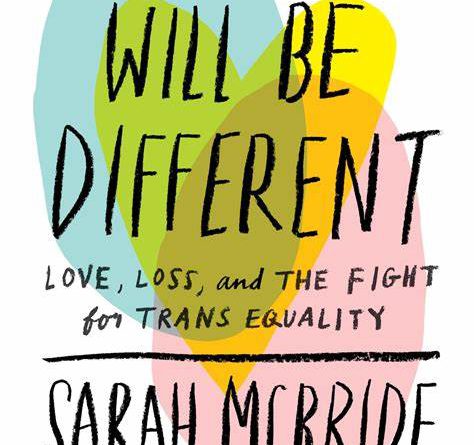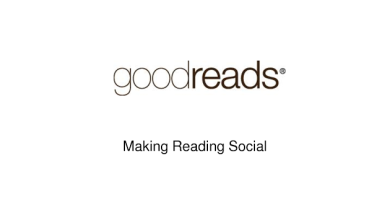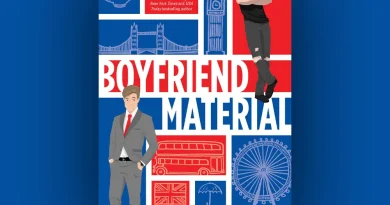Tomorrow will be different
Tomorrow Will Be Different: Love, Loss, and the Fight for Trans Equality is a 2018 memoir by Sarah McBride, published by Crown Archetype, an imprint of Penguin Random House.

Book overview
Before she became the first transgender person to speak at a national political convention in 2016 at the age of twenty-six, Sarah McBride struggled with the decision to come out—not just to her family but to the students of American University, where she was serving as student body president. She’d known she was a girl from her earliest memories, but it wasn’t until the Facebook post announcing her truth went viral that she realized just how much impact her story could have on the country.
Four years later, McBride was one of the nation’s most prominent transgender activists, walking the halls of the White House, advocating inclusive legislation, and addressing the country in the midst of a heated presidential election. She had also found her first love and future husband, Andy, a trans man and fellow activist, who complemented her in every way … until cancer tragically intervened.
Informative, heartbreaking, and profoundly empowering, Tomorrow Will Be Different is McBride’s story of love and loss and a powerful entry point into the LGBTQ community’s battle for equal rights and what it means to be openly transgender. From issues like bathroom access to health care to gender in America, McBride weaves the important political and cultural milestones into a personal journey that will open hearts and change minds.
As McBride urges: “We must never be a country that says there’s only one way to love, only one way to look, and only one way to live.”
The fight for equality and freedom has only just begun.
Excerpt
It’s rare to know in real time that what you are about to do will define the course of the rest of your life. But as I sat at my laptop in the small office I had been given as student body president at American University, I knew that my world was about to turn upside down. I was about to reveal my deepest secret and take a step that just a few months before would have seemed impossible and unimaginable.
My hand hovered over the keypad of my laptop, ready yet reluctant to click “post” on a Facebook note that would change my life forever. I could almost hear the responses I feared would come.
What a freak. Ew. This is disgusting.
And probably the most biting, because I was afraid it was true: Well, there goes any life and future for that kid.
Throughout my whole life until this point, it had always seemed that my dreams and my identity were mutually exclusive. My life had been defined by a constant tension between the two: the belief—as certain as the color of the sky—that it was impossible for me to have a family, a career, fulfillment, while also embracing the truth that I am a transgender woman.
For the first twenty-one years of my life, my dreams—the possibility of improving my world and making my family proud—had won out over my identity. But the older I got, the harder it became to rationalize away something that had become clear was the core of who I am. And by college, it had enveloped my whole being. It was present every second of my life.
I no longer had a choice. I couldn’t hide anymore. I couldn’t continue living someone else’s existence. I needed to come out. I needed to tell the world that I was transgender. I needed to live my own life as me.
A little over a year before, I had been elected student body president at American University. AU, nestled between suburban neighborhoods in northwest Washington, D.C., is one of the most politically active schools in the country and boasts a rich history of political milestones. It was the site where John F. Kennedy called for “not merely peace in our time, but peace for all time” months after the Cuban Missile Crisis, and the home of the younger Ted Kennedy’s pivotal endorsement of then-senator Barack Obama in the 2008 Democratic primary.
I had always loved politics, advocacy, and government. They had seemed like the best way to improve my community and leave a lasting impact on the world. From the ages of six and seven, after discovering the White House and learning about all of the history that occurred within its walls, I knew that politics would be my life’s calling.
When I served as student body president at AU and began working on the issues I had always cared about—gender equity, racial justice, opportunity regardless of economic background, and, yes, LGBTQ equality—it became clear that making a difference in the world wouldn’t diminish or dilute my own pain and incompleteness.
I had come out to my parents over winter break in the middle of my yearlong term. Since then, I had come out to my closest friends, and as I woke up on the morning of April 30, 2012, my last day as student body president, I was resolved to announce to the world that I was really Sarah McBride.
Reading Guide Questions
Please be aware that this discussion guide will contain spoilers!
- Sarah knew she was transgender at a very young age but struggled for years to accept her identity because she didn’t see herself represented in the media (unless a trans person was the butt of a mean joke on a sitcom). How have things changed since then? What factors do you feel have enabled this shift?
- What was your experience reading Tomorrow Will Be Different? What surprised you most while reading the book and in what you learned?
- Many people don’t know where to begin when they start learning about LGBTQ issues and are often overwhelmed with information. Did you feel this way before reading Tomorrow Will Be Different? Why or why not? Did your opinions change after reading the book? If so, how? Which part?
- Which part of Sarah’s story were you most drawn to and why?
- Sarah writes about the nearly universal desire to be seen. When were some times you felt unseen, unheard, or marginalized, and how did you go about handling those situations?
- Sarah’s experiences are the main focus of her memoir, but she points out that trans issues are closely linked with many other issues. For example: Trans women of color are more likely to experience violence, assault, and even homelessness. What other major issues can you think of that affect transgender people, whether in this book or in the world in general?
- Throughout Sarah’s life, she has sought to bring about change. What do you think of her strategies for making progress? What do you think are the most effective ways to bring about change?
- Did reading Sarah’s story inspire you to want to join the fight for equality? If so, how do you think you might get involved? (Hint: Visit HRC.org to learn more about how to fight the good fight!)





Pingback: 5th May 2022 - Velvet Page Book Club